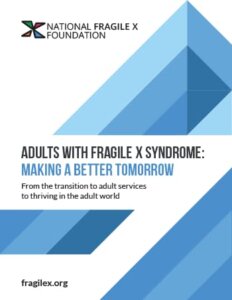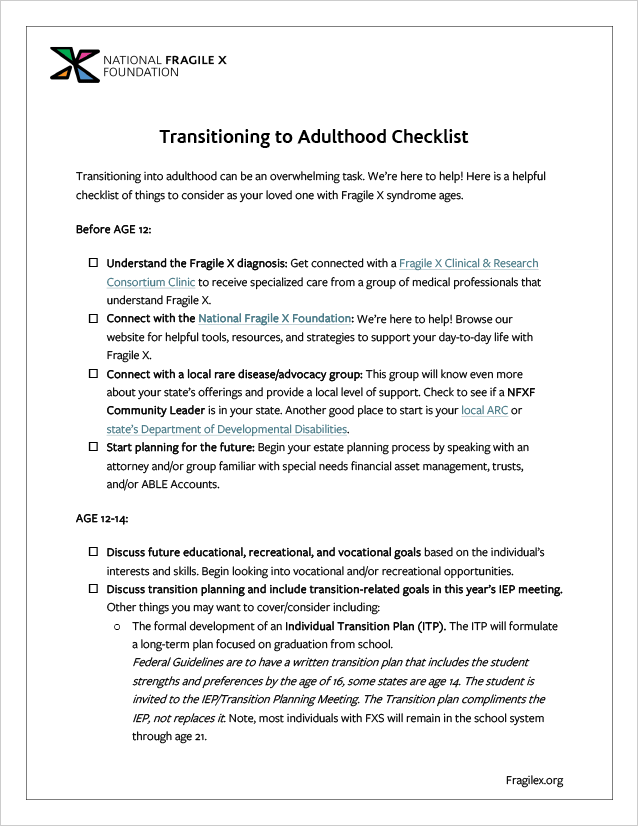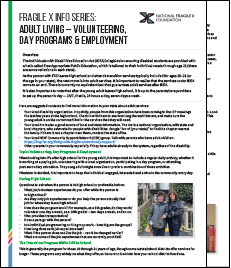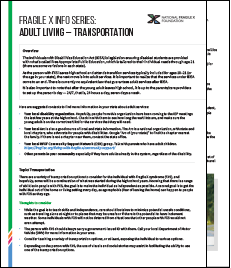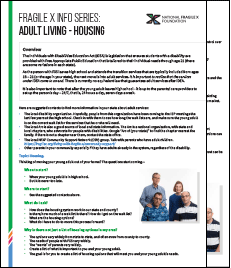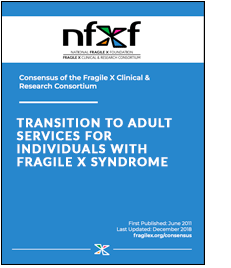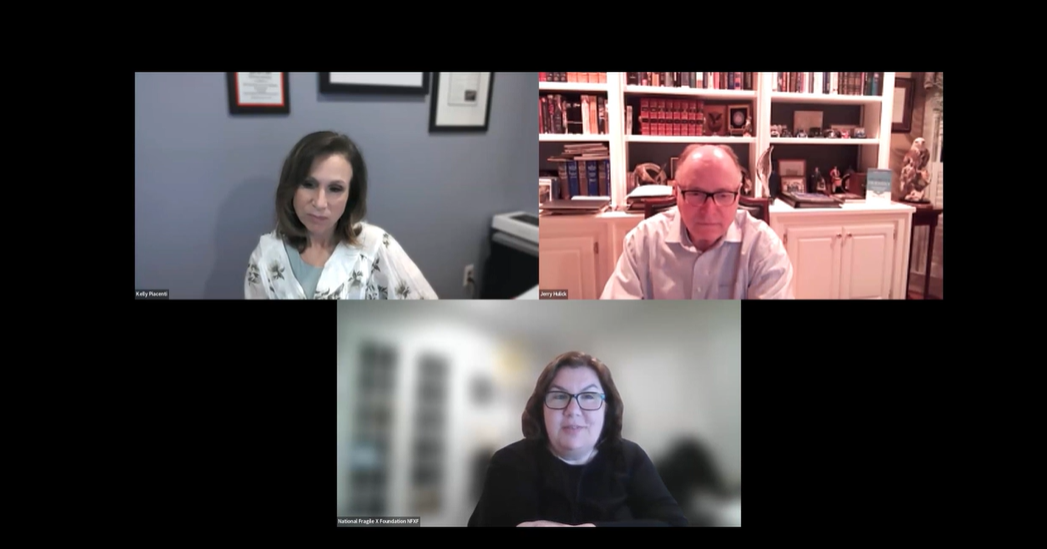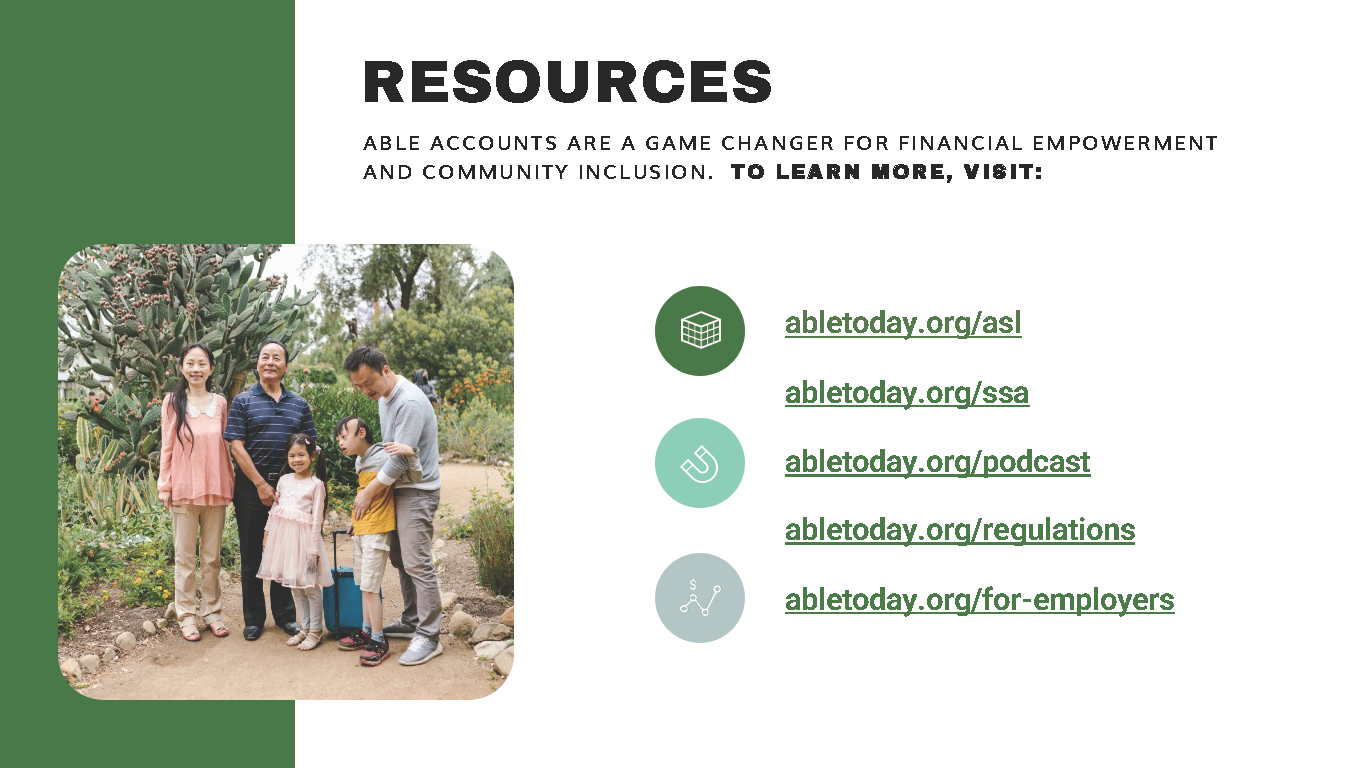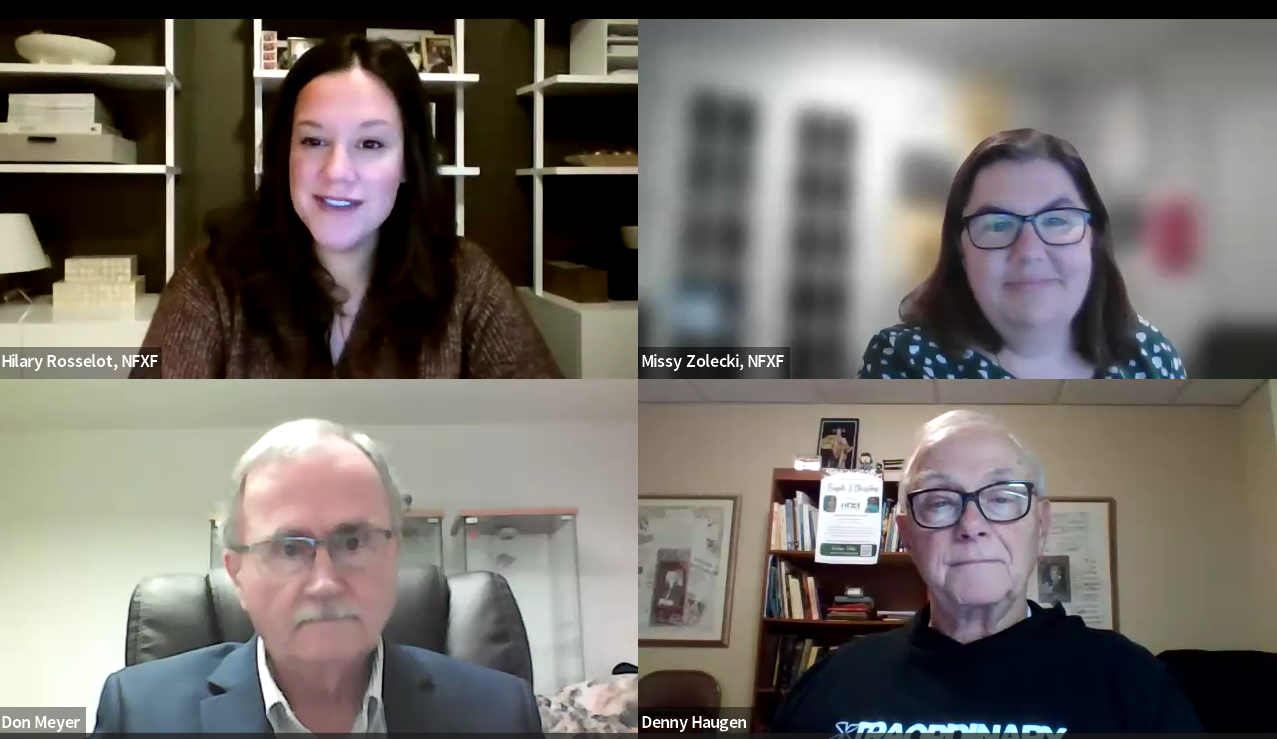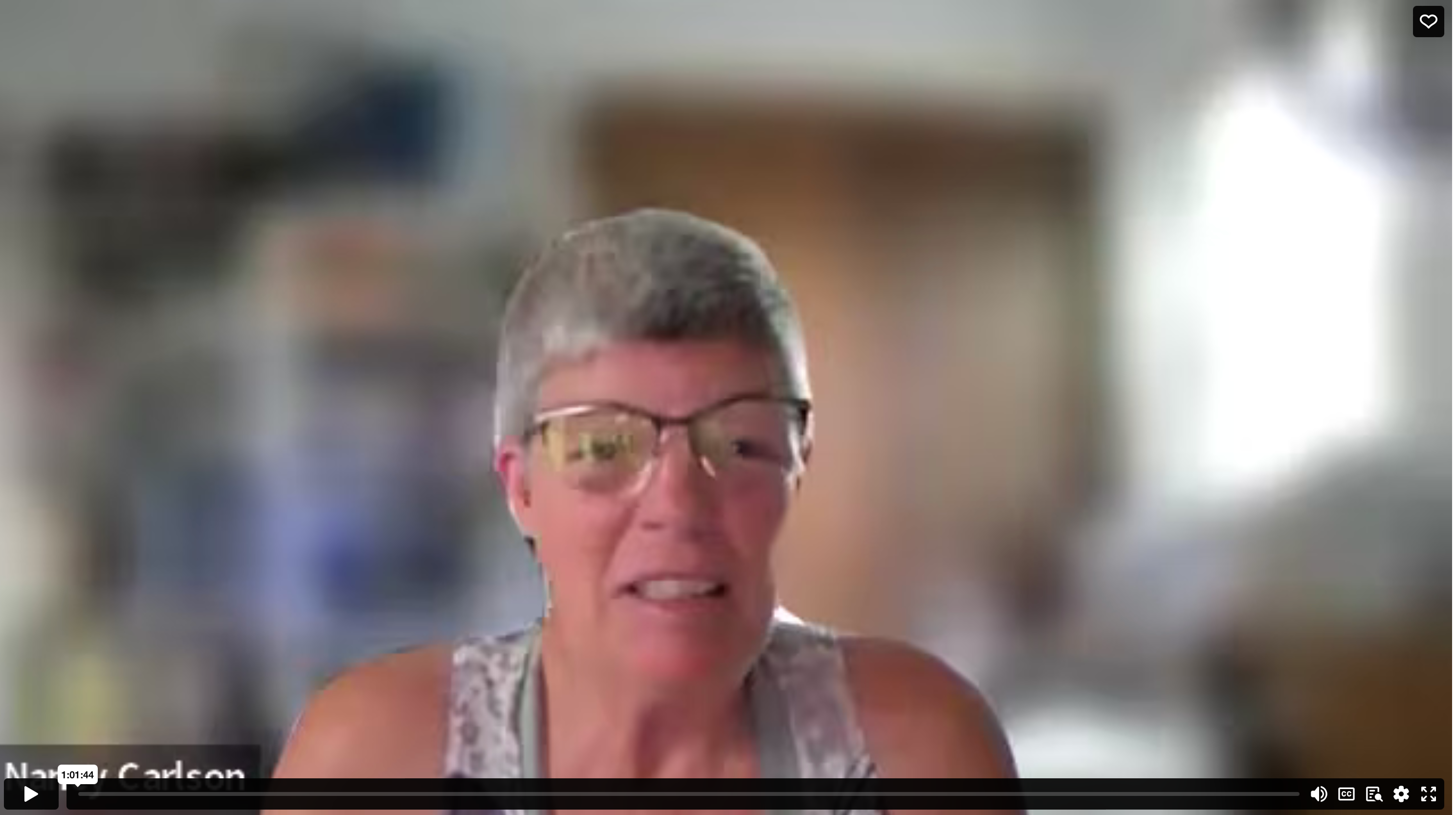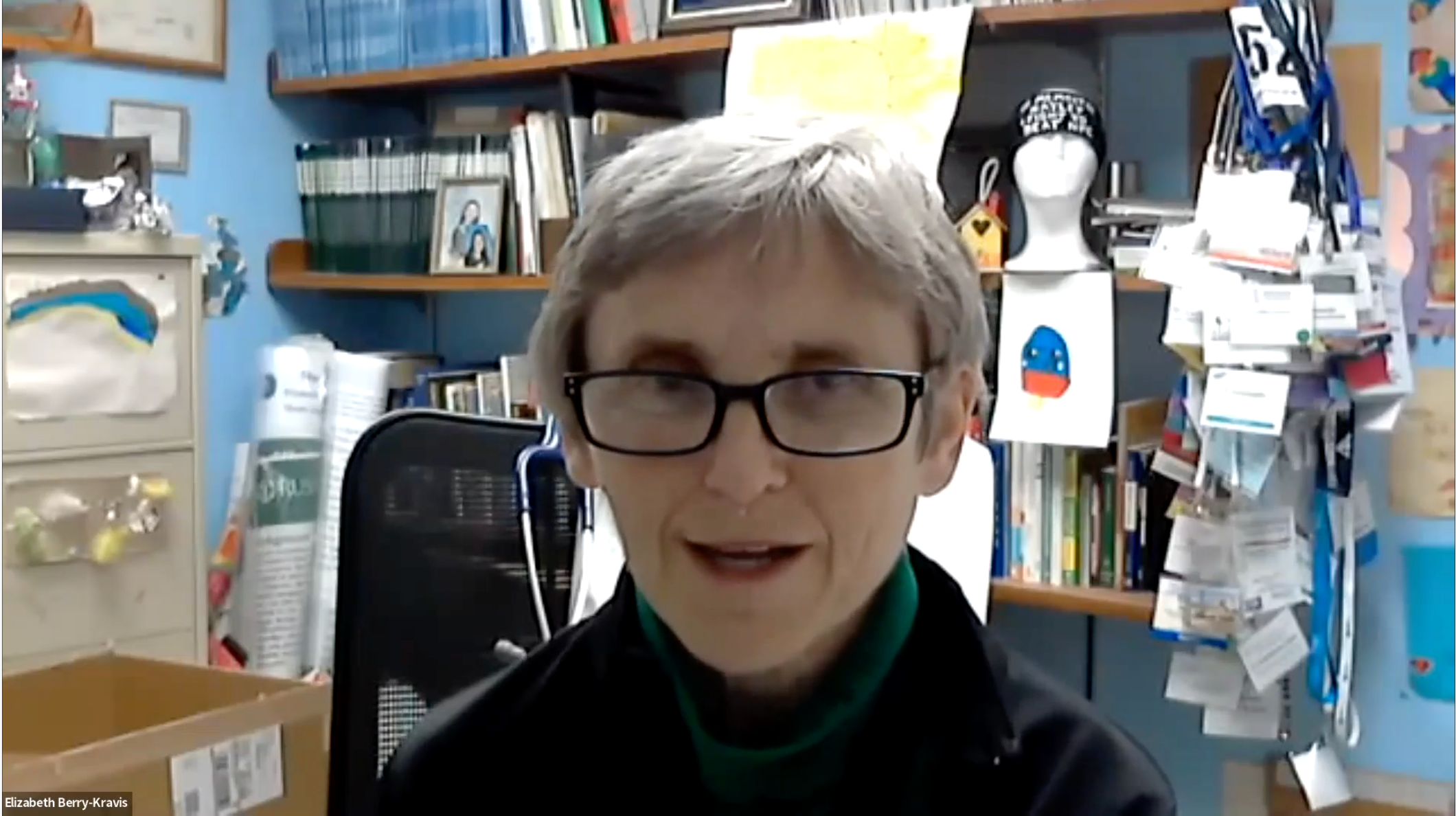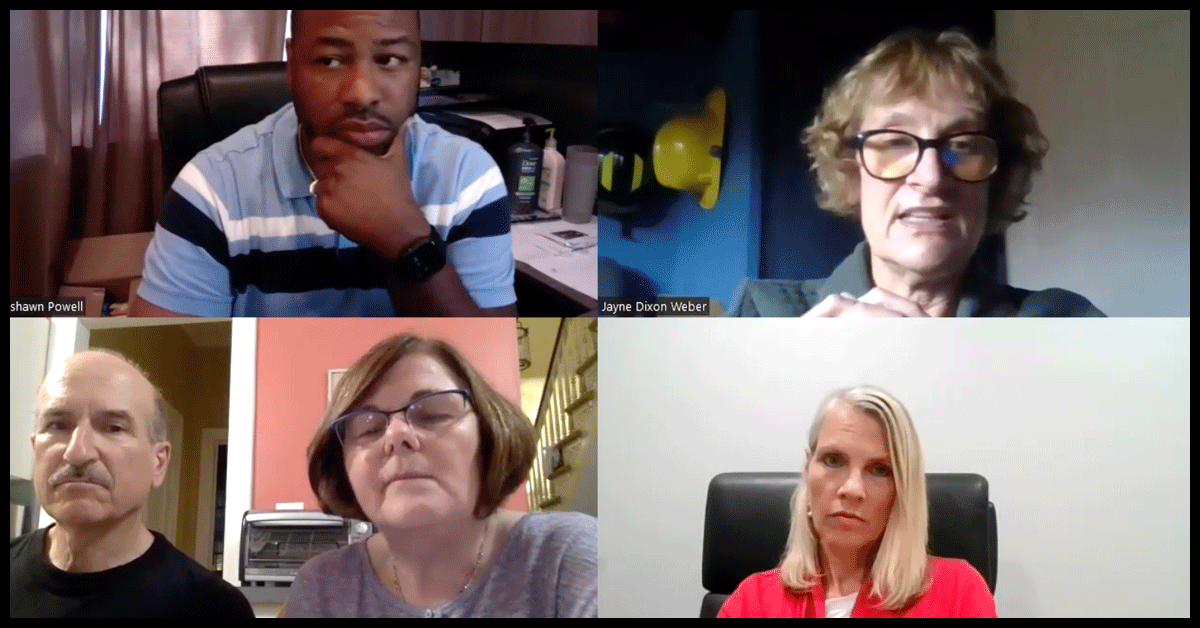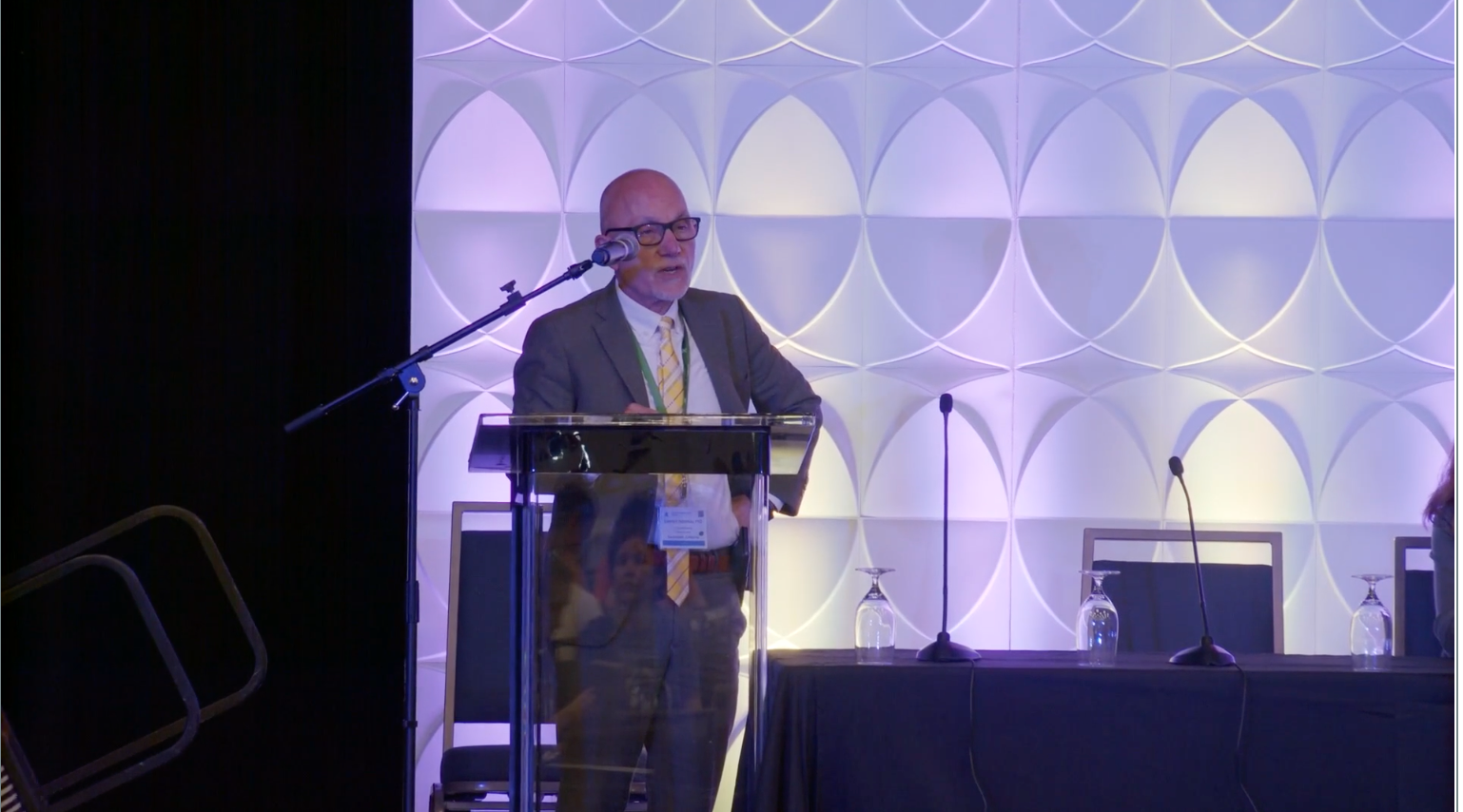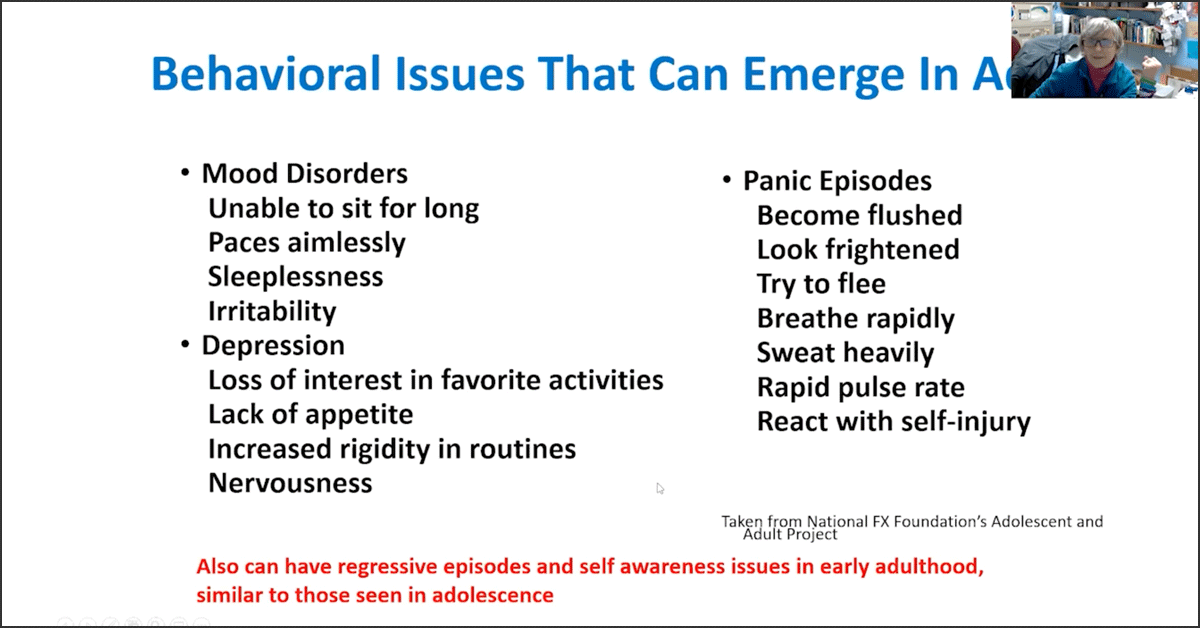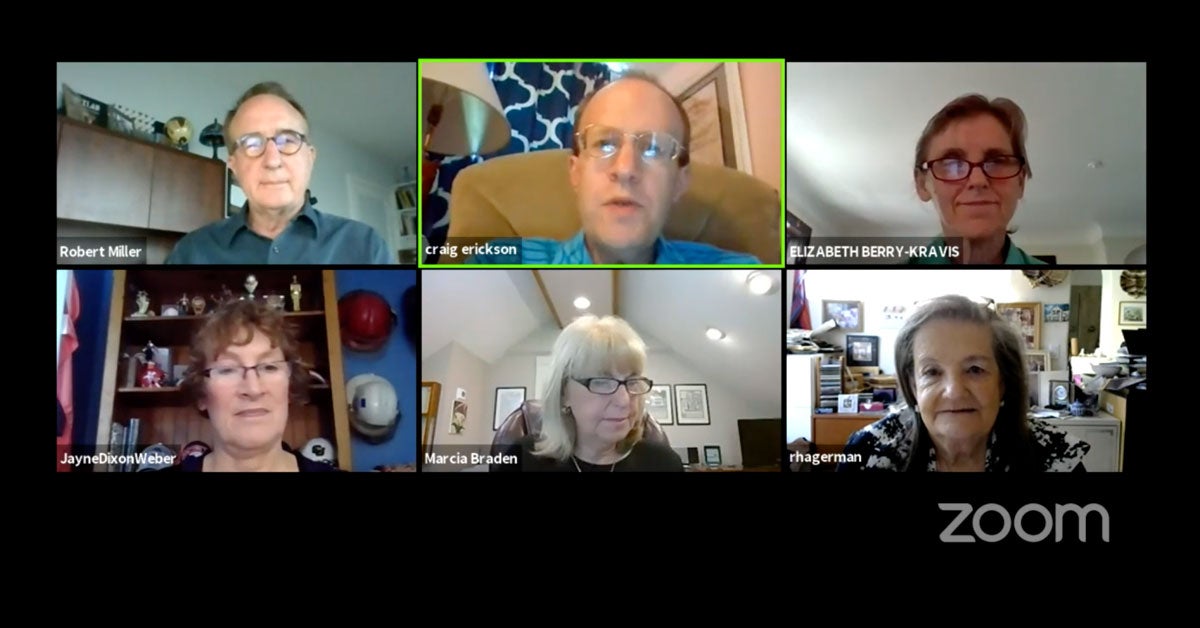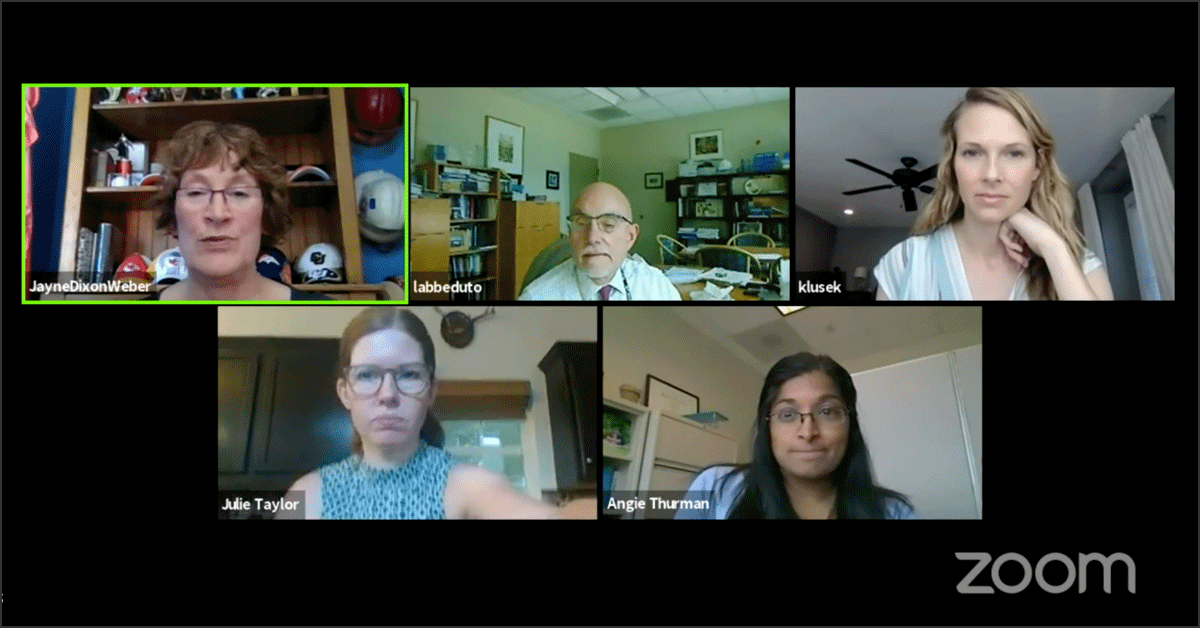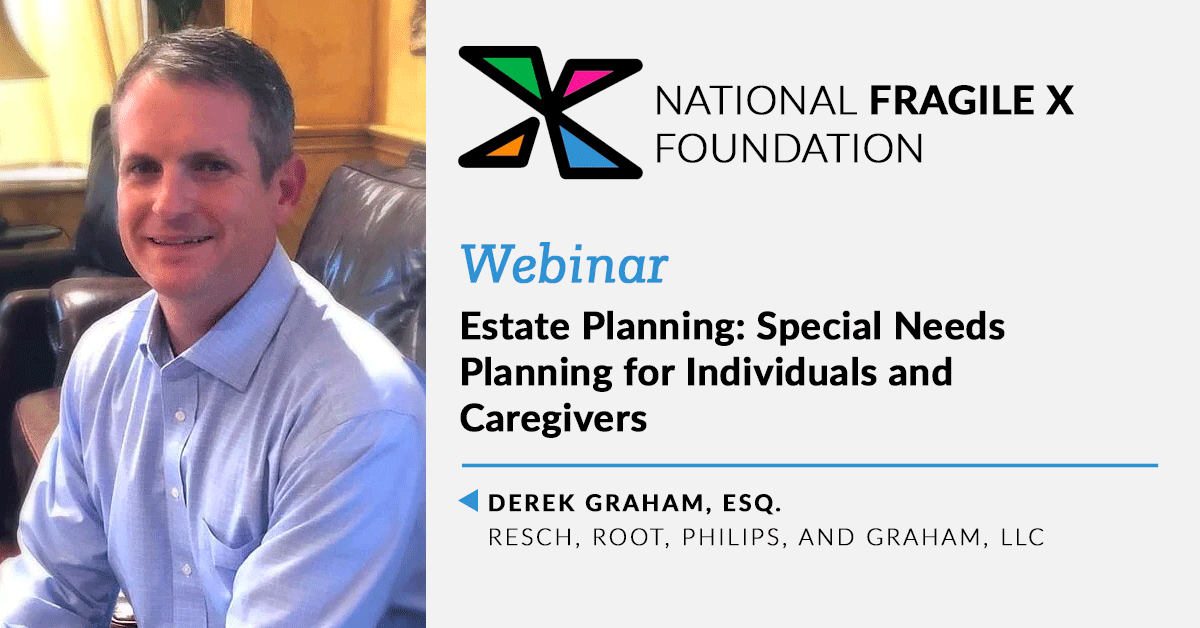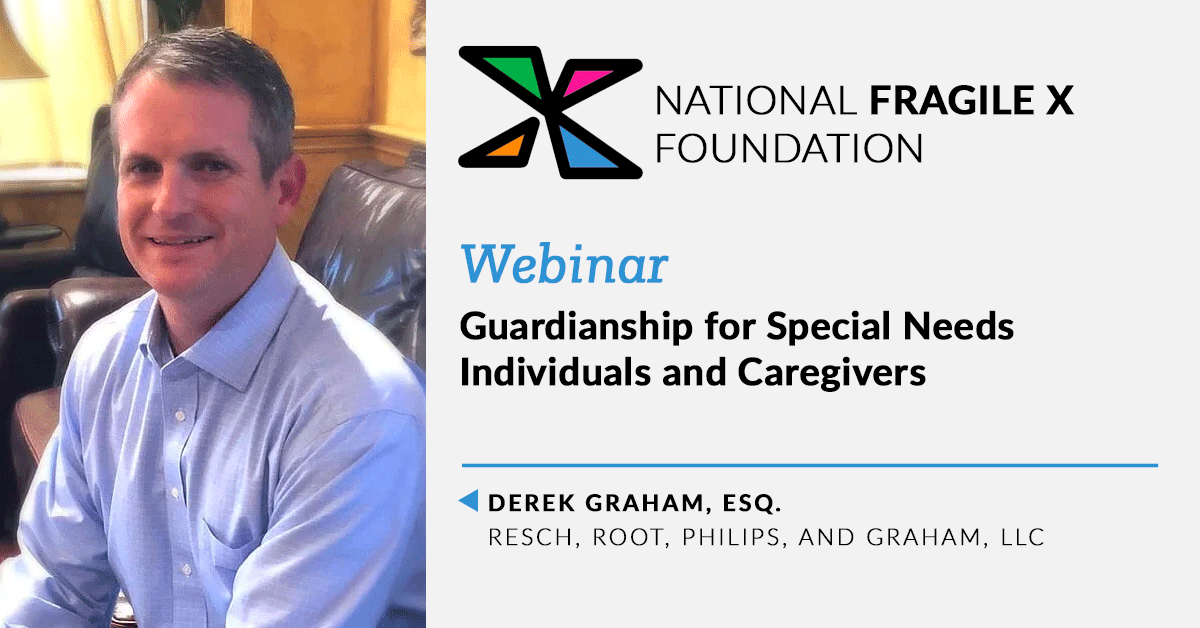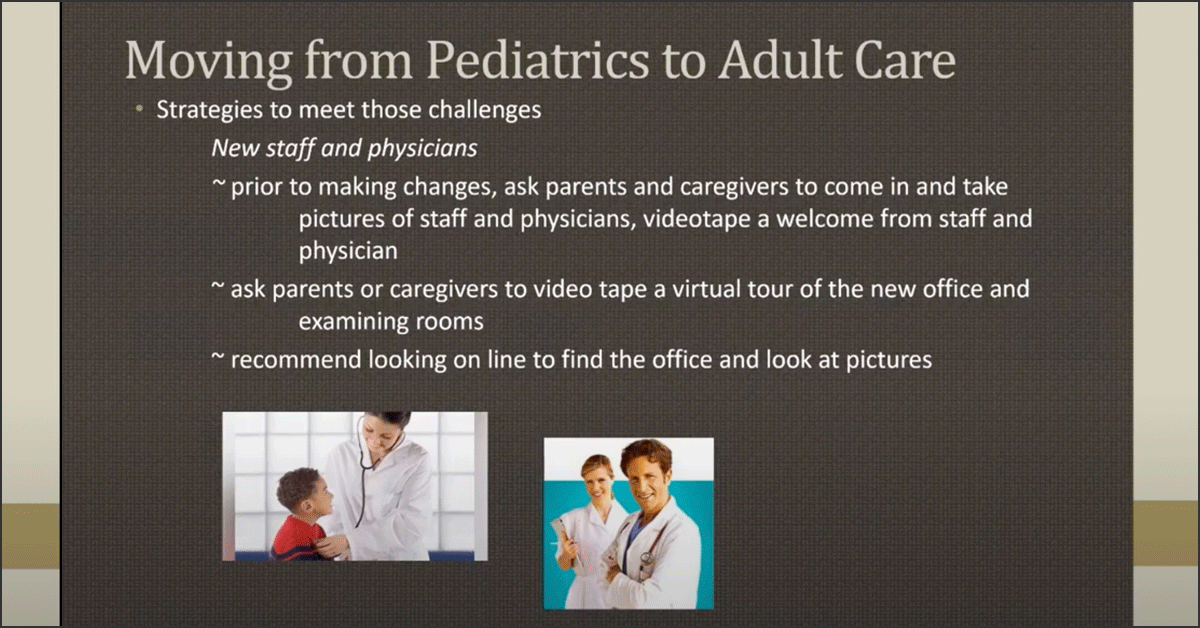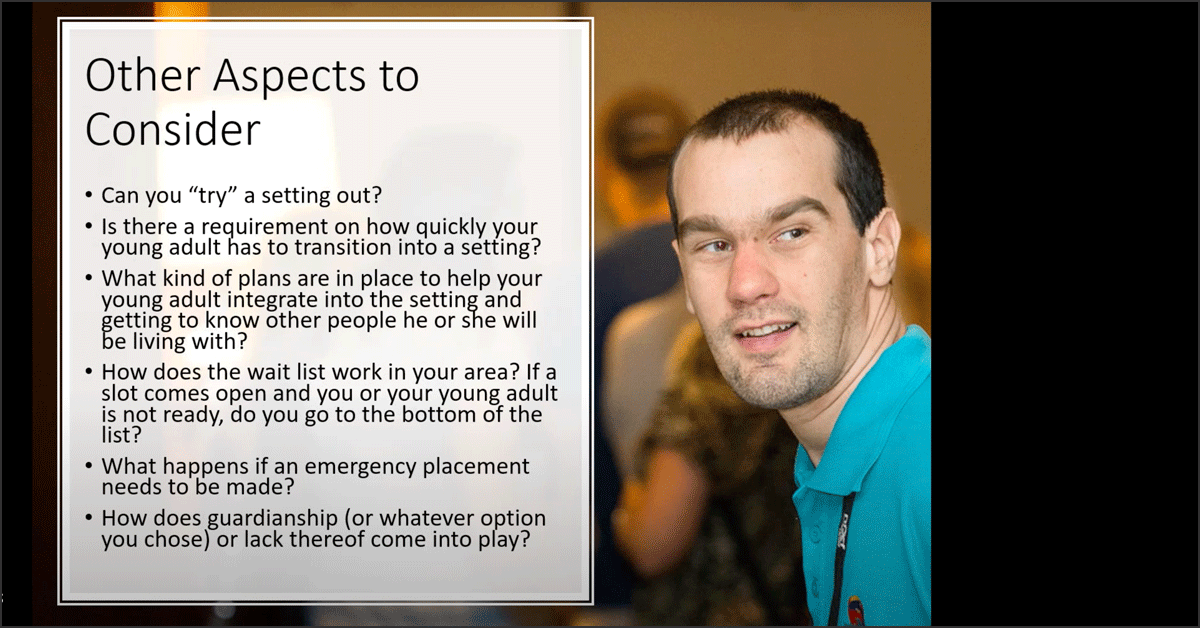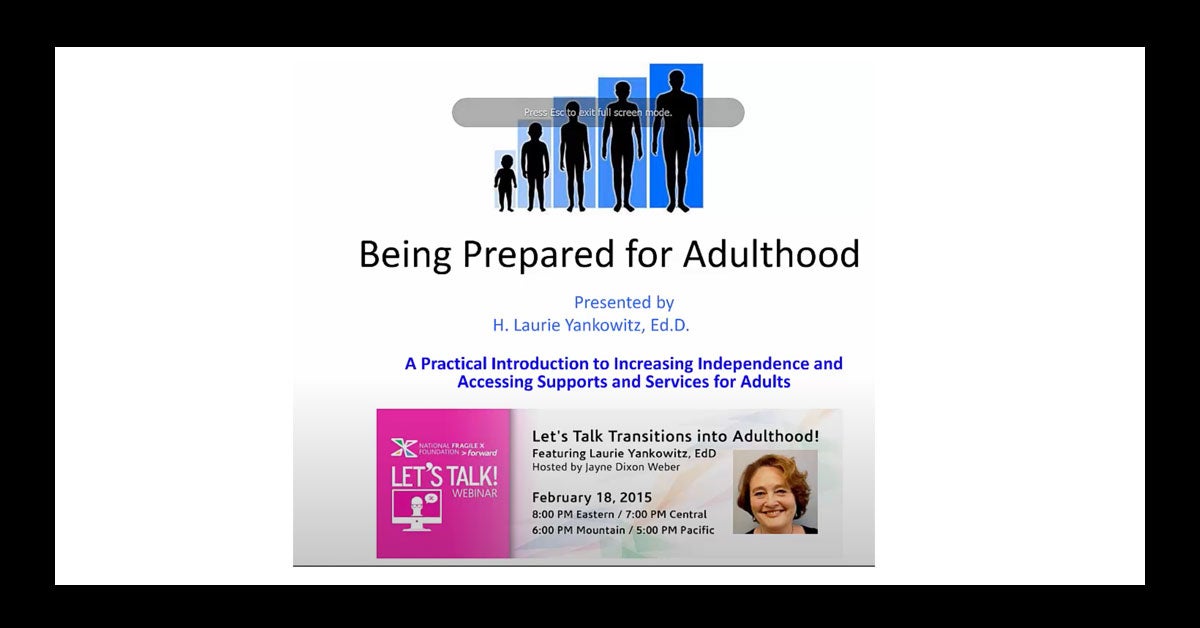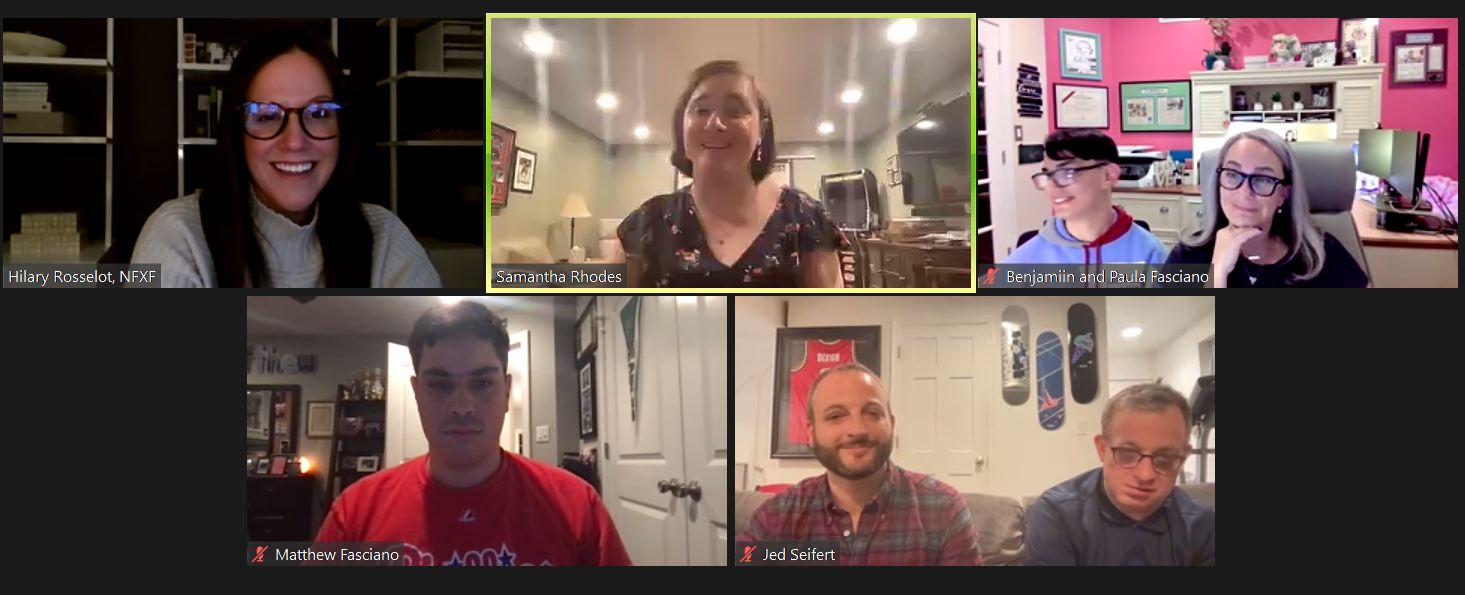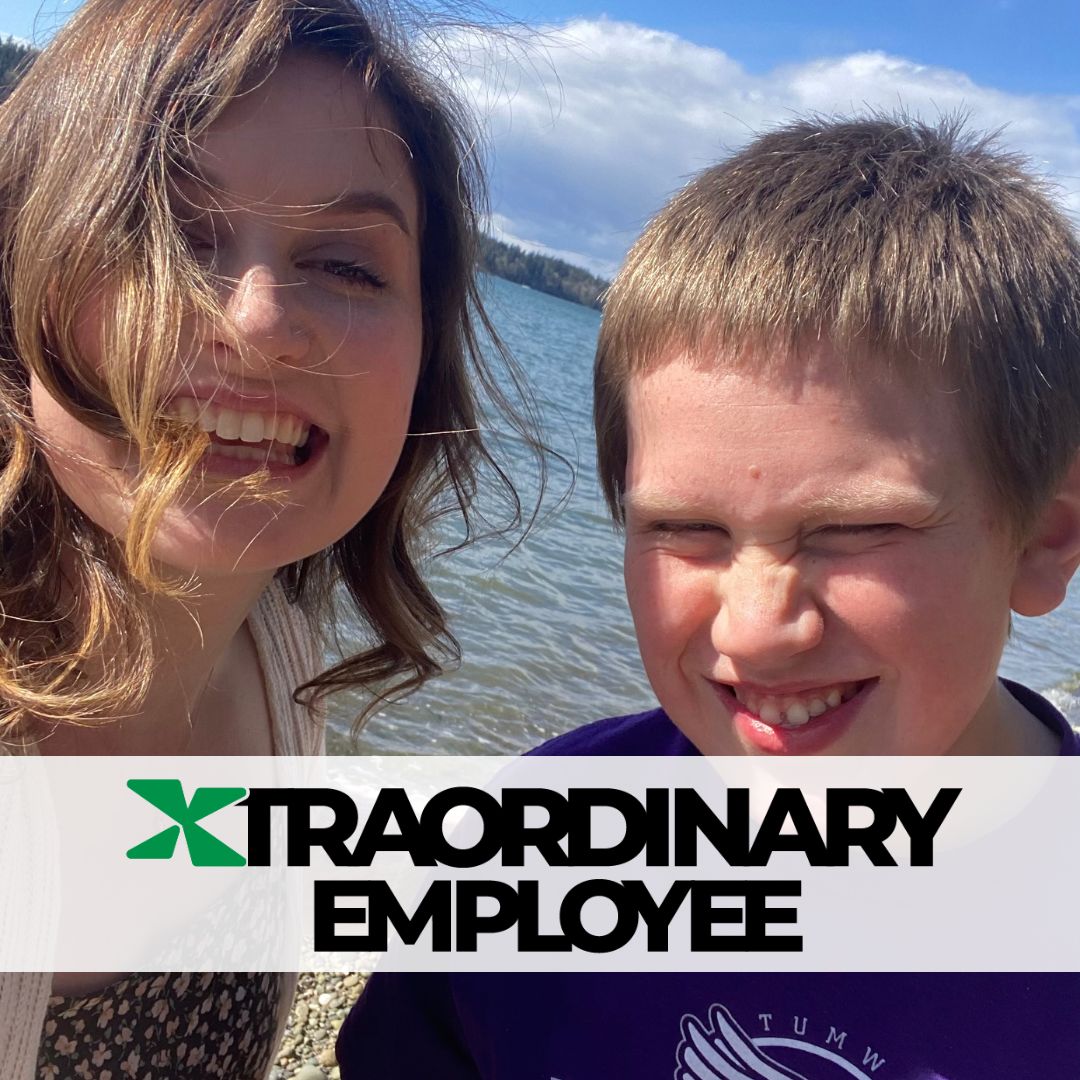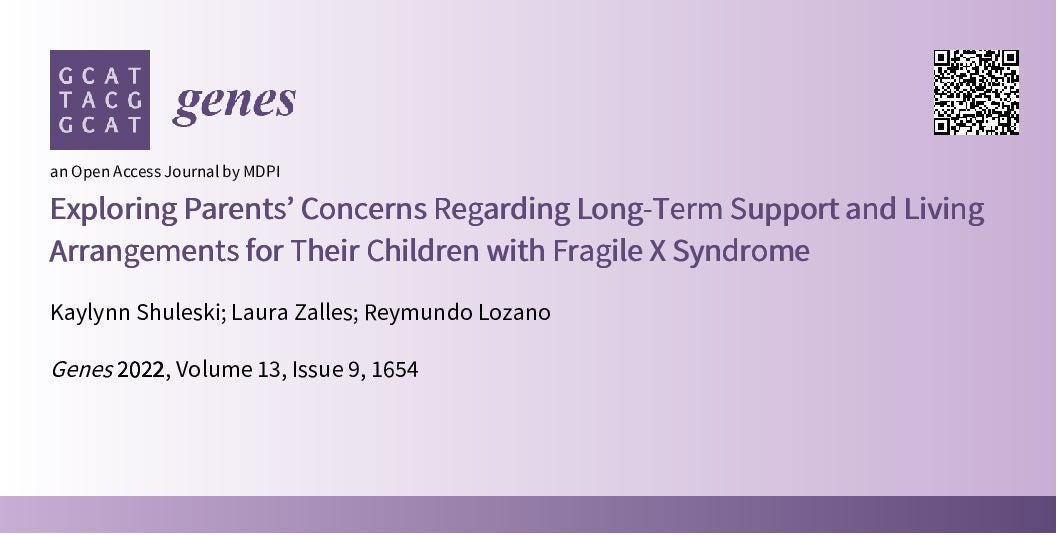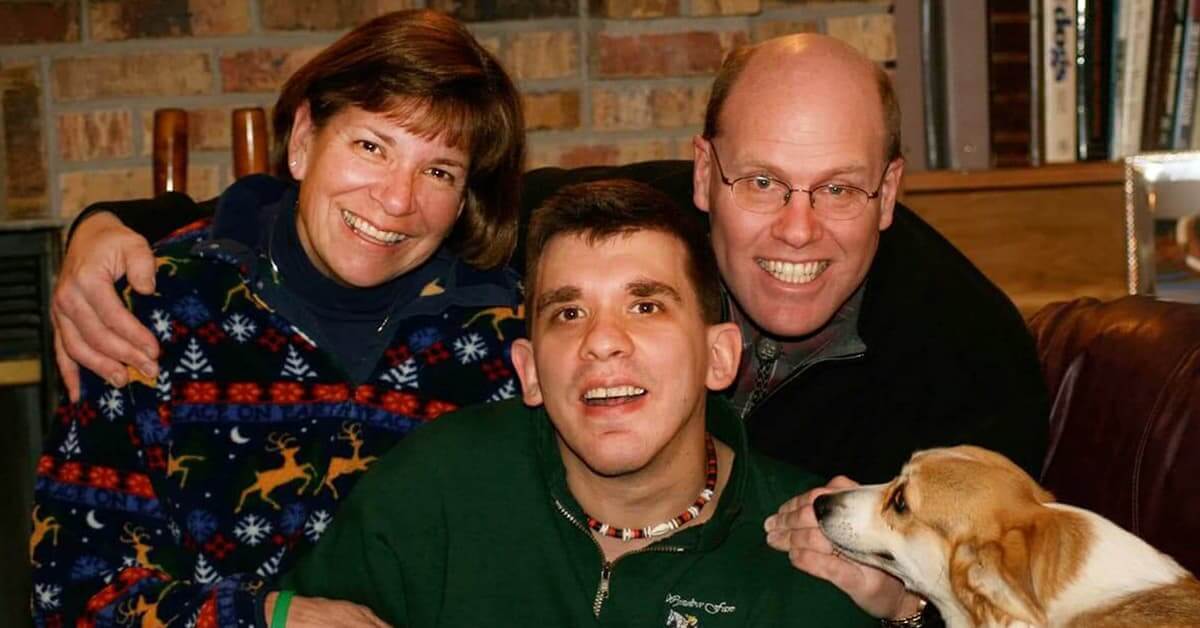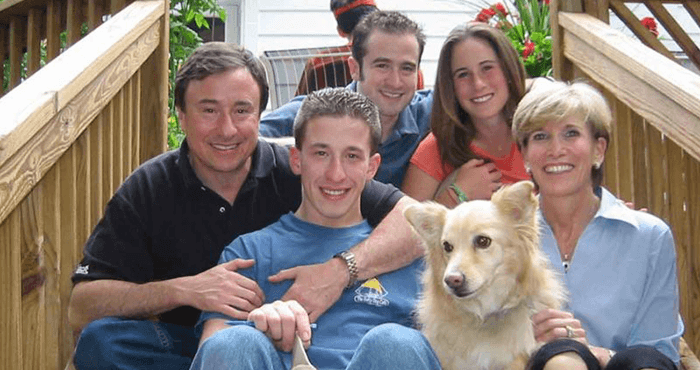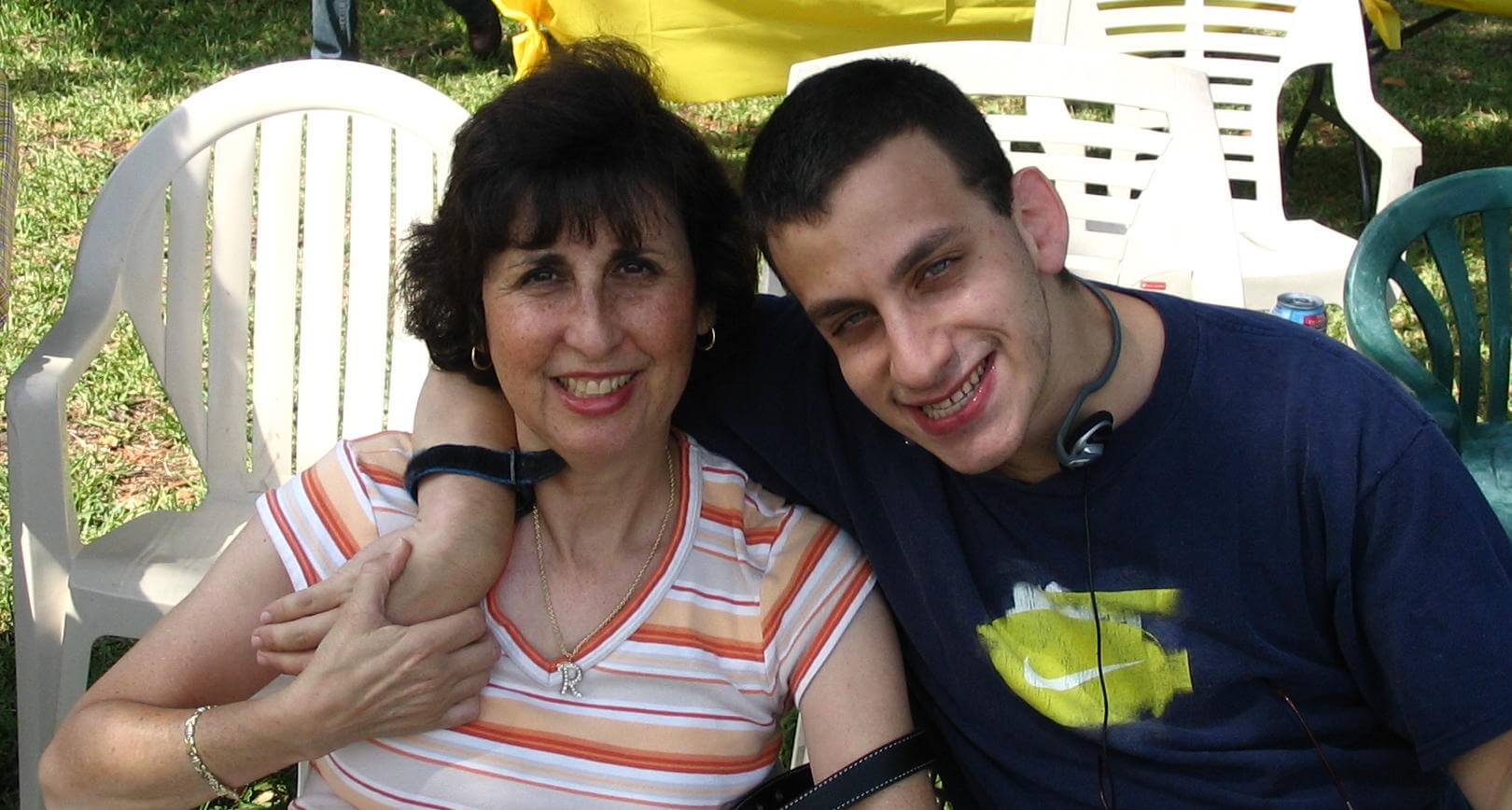Adulthood and Fragile X Syndrome
Challenges faced by adults with Fragile X syndrome — and their caregivers — may include cognitive, learning, communication, and physical and medical issues. Difficulties in adulthood often begin with the transition from adolescence into adulthood and continue throughout their lives. As they age, common issues families face include housing, employment, and transportation. However, with support and intervention strategies, adults with Fragile X syndrome can lead fulfilling and meaningful lives.
- Adults With Fragile X Syndrome: Making a Better Tomorrow — eBook
- Info Series on Adult Living — Volunteering, Day Programs, Employment, Transportation, Housing, Transitions
- Transition to Adult Services for Individuals with Fragile X Syndrome — Treatment Recommendations
- Webinars
- From Our Blog
- Additional Resources
Adults with Fragile X Syndrome: Making a Better Tomorrow
We have built the ultimate guide on transitioning and caring for adults with Fragile X syndrome. Our e-book includes chapters on the transition to adult services, transportation, housing, employment, post-secondary education, and daily living.
Transitioning to Adulthood Checklist
From childhood through adulthood, transitioning can be an overwhelming task for parents and caregivers and, most importantly, for your loved one with Fragile X syndrome. We’re here to help! This checklist includes age-by-age checklists from adolescence through adulthood.
From Our Info Series
All of our Info Series are available to read online and as a PDF download (in both English and Spanish) designed to be easily printable on your home or office printer. You may also want to browse our other available Info Series flyers on various topics for both FXS and premutation carriers.
Treatment Recommendations
This paper is focused on the transition from adolescence to adulthood. Because the research on this topic is limited, much of the information is anecdotal, meaning it is taken from clinical experience or provided by parents. Formal studies are referenced.
Webinars
Top Financial Mistakes to Avoid for Special Needs Dependents— Webinar
Kelly Piacenti and Jerry Hulick joined us for the next topic of the NFXF Webinar Series - Top Financial Mistakes to Avoid for Special Needs Dependents. They shared common financial decisions that could impact your loved one's future benefits and supports.
Financially Empowering the Fragile X Community Through ABLE Accounts — Webinar
Join us for the Financially Empowering the Fragile X Community Through ABLE Accounts webinar with Mark Raymond Jr. & John Finch.
10 Basic Financial Steps for Special Needs Caregivers — Webinar
Kelly Piacenti joined us for the next topic of the NFXF Webinar Series -10 Basic Financial Steps for Special Needs Caregivers. She shared information to help caregivers get started in preparing for the financial future of their loved one with Fragile X.
Introductory Discussion on Estate Planning — Webinar
We hosted an introductory discussion on bequests, wills, trusts, life insurance, and IRA transfers. The panel provided insight on navigating the complexities of wealth transfer, ensuring your legacy is preserved and your loved ones are well cared for.
Housing Options for Adults With Fragile X Syndrome: Parents Share Their First-Hand Experiences — Webinar
Adult housing options and support services may be limited and difficult to access. A group of parents shared their firsthand experiences supporting their loved one with Fragile X determine a suitable living situation.
Aging in Fragile X Syndrome — Webinar
Dr. Berry-Kravis presents a one hour Q&A about what we’ve learned from the FORWARD data on aging for individuals living with Fragile X syndrome.
Housing Options for Adults With Fragile X Syndrome — Webinar
Adult services may be limited and difficult to access, so how does a parent deal with that nagging question that keeps them up at night: What will happen when I’m gone?
Transitioning to Independence in Adulthood: What Helps? What Hurts? — Panel
A panel of experts present research-based information on the factors that promote or hinder the transition to independence of young adults with FXS after completion of high school and formal education. Panelists Leonard Abbeduto, Jessica Klusek, Angie Thurman, and Julie Lounds Taylor also take questions from the audience.
What Weʼve Learned from FORWARD About Aging in Fragile X Syndrome — Webinar
Dr. Elizabeth Berry-Kravis discusses the FORWARD database and its role in understanding problems that face adults living with Fragile X syndrome.
Fragile X Syndrome Self-Advocates Share Their Challenges and Triumphs — Presentation
One of the most common questions related to Fragile X is what limitations does a person with Fragile x syndrome have? Meet Allison Cohen, Michael Cohen, Doug Cooper, Aaron Heisel, Samantha Rhodes, Joshua Rocker, Jodi Selinger, Spencer Shelton, and Cassie Stringer.
Caring for Adults with Fragile X Syndrome — Panel
Our panel discussion from the 2020 conference on adult issues in Fragile X syndrome. Presented by Elizabeth Berry-Kravis, Marcia Braden, Jayne Dixon Weber, Craig Erickson, and Randi Hagerman.
Transitioning to Independence in Adulthood: What Helps? What Are the Barriers? — Panel
Our expert panel, Leonard Abbeduto, Jessica Klusek, Julie Lounds Taylor, and Angela John Thurman, present research-based information on the factors that promote and hinder the transition to independence for adults with Fragile X syndrome.
Estate Planning: Special Needs Planning for Individuals and Caregivers — Webinar
Learn how to leave money and other assets for the benefit of a child with special needs without causing the child to lose important public benefits.
Guardianship for Special Needs Individuals and Caregivers — Webinar
Learn about if and when guardianship should be considered and the requirements needed, plus less restrictive alternatives, such as financial and healthcare powers of attorney.
Moving from Pediatrics to Adult Services — Webinar
Dr. Marcia Braden on the difficulties associated with patients with Fragile X syndrome transitioning from a pediatric to an adult care provider.
Adult Living Situations and Fragile X — Webinar
As your child gets older, there are many decisions to be made. One of the biggest decisions is determining the best living situation for your young adult.
NFXF Webinar: Being Prepared for Adulthood
Dr. Yankowitz discusses the adult transitions you want to start planning well before your child ages out of services. Dr. Yankowitz has more than 30 years experience working with families of individuals with developmental disabilities.
From Our Blog
Happy National Disability Employment Awareness Month!
October is a time that draws the attention of the nation on critical issues related to disability employment, bringing awareness to a subject that we know has importance all year round. We know many individuals living with Fragile X want to work and though some do, not everyone who wants a job has found one that best fits their strengths and skillsets. We are determined to help you educate yourself on the supports that exist and how to best advocate for you or your loved ones needs in the workplace.
About Me Template- For School or Work Environments
Use our customizable "About Me" template to help describe Fragile X to your schoolmates or colleagues.
Introductory Discussion on Estate Planning — Webinar
We hosted an introductory discussion on bequests, wills, trusts, life insurance, and IRA transfers. The panel provided insight on navigating the complexities of wealth transfer, ensuring your legacy is preserved and your loved ones are well cared for.
Employment Strategies and Successes — Webinar
In celebration of National Disability Employment Awareness Month, we were joined by a dynamic panel that shared strategies and their individual employment successes! Meaningful employment is important to parents and self-advocates!
October 2023 is Disability Employment Awareness Month!
Join us in celebrating Xtraordinary Employees during National Disability Employment Awareness Month!
Exploring Parents’ Concerns Regarding Long-Term Support and Living Arrangements for Their Children with Fragile X Syndrome
Given the limited data regarding future planning specific to individuals with Fragile X Syndrome (FXS) and the growing population of this community, this study sought to explore the concerns and challenges caregivers of individuals affected by FXS encounter when considering long-term support plans.
The ABLE Employment Flexibility Act
The ABLE Employment Flexibility Act (H.R. 4672) permits employers to contribute to an employee’s ABLE account instead of a 401(k) – including an employer’s match. By saving it in the ABLE account it will not adversely affect most means-tested federal benefits.
Discovering Your Young Adultʼs Strengths for a More Satisfying Career Path
First jobs are hard, and as a young adult with Fragile X syndrome it may be nearly impossible without a little help from parents and others in their lives to help them recognize their own strengths.
8 Employee Attributes to Teach Your Young Adult
Getting a new job is exciting, but young adults with Fragile X syndrome need to also understand what's expected of them at a workplace. Help them prepare by first understanding these eight guidelines.
Employment Opportunities for Your Young Adult
Helping your young adult transition out of school and into a new job can be overwhelming, we have some tips and resources to make it a little easier for both of you.
Tips for Beginning the Moving Out Process with Your Young Adult
Helpful tips and insight into various housing options, sources of funding, and points to consider before your young adult's big move.
8 Tips on Transitioning Your Child to Adult Services
Parents and other caregivers must consider many factors as young people with Fragile X syndrome approach the transition from high school to adulthood. Here we present eight tips based on research from Morgridge College of Education at the University of Denver.
Purposeful Vocational Training for Your Teen or Adult Child
Suggestions from DevelopmentalFX on how to make transitions into the workplace during the high school years more valuable and comfortable for everybody.
11 Tips for When Your Young Adult Moves Out
Your child must learn to depend on someone other than you. It's an emotional time, but their independence is what you've been working toward all these years.
Getting and Keeping a Job
It was late summer and Ian was 18 years old and he was getting ready to start the transition program at his high school, a program for students 18-21 years old after they graduate from high school. I had to figure out how to make this work.
Sample Interview Questions for a Care Provider (PDF)
Employment questionnaire laws and regulations differ from state to state. We cannot guarantee that all of the sample questions can be asked in your state. Check with your state’s Department of Fair Employment or consult with an attorney familiar with employment law in your area.
Living Settings Checklist (PDF)
A checklist of some of the most important consideration to evaluate your child’s individual needs when considering a living setting.
Study: Transitioning to Adulthood with Fragile X Syndrome
University of Kansas’ LifeSpan Institute is conducting research to learn about the transition to adulthood for individuals with Fragile X syndrome, as well as the experiences of parents of these young adults.
Exploring the Adult Life of Men and Women With Fragile X Syndrome: Results From a National Survey
Using data from a national family survey, the authors describe the adult lives (i.e., residence, employment, level of assistance needed with everyday life, friendships, and leisure activities) of 328 adults with the full mutation of the FMR1 gene and identify characteristics related to independence in these domains.


